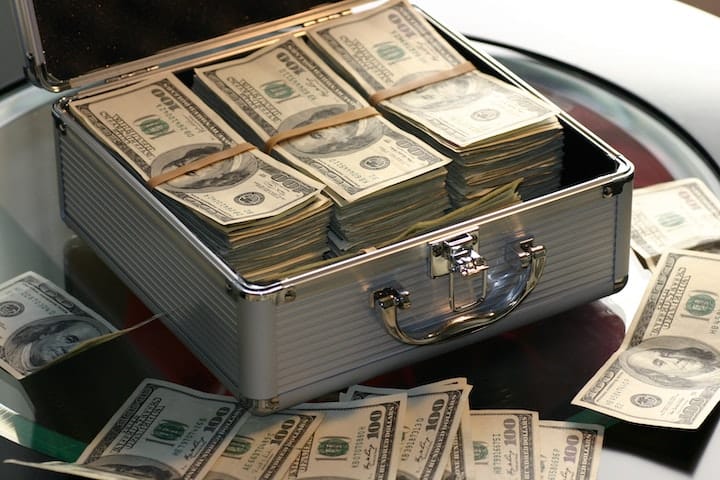The Role of Profit in Business
by CAPP-USA

The Role of Profit is essential to business… AND must ensure human dignity.
Is Profit Good?
Let’s examine the role of profit. Pope St. John Paul II declared, “The Church acknowledges the legitimate role of profit as an indication that a business is functioning well. When a firm makes a profit, this means that productive factors have been properly employed and corresponding human needs have been duly satisfied.” (Centesimus Annus, 35)
What is the Role of Profit?
“Profit is a regulator of the life of a business, but it is not the only one; other human and moral factors must also be considered which, in the long term, are at least equally important for the life of a business.” (Centesimus Annus, 35)
For example, “It is possible for the finance accounts to be in order, and yet for the people — who make up the firm’s most valuable asset — to be humiliated and their dignity offended.” (Pope St. John Paul II, 35) So, while profit is an essential aspect of business it should also be used to ensure basic needs and the human dignity of employees are being met.
Keep our Eyes on the Big Picture
At its essence, a business is to serve humanity and society.
“In fact, the purpose of a business firm is not simply to make a profit, but is to be found in its very existence as a community of persons who in various ways are endeavouring to satisfy their basic needs, and who form a particular group at the service of the whole of society.” (Pope St. John Paul II, 35)
Pope St. John Paul II was careful to reiterate this teaching several times in (Centesimus Annus)
“Profit is a regulator of the life of a business, but it is not the only one”. (Pope St. John Paul II, 35)
Consistent Catholic Social Teaching
This conclusion had been set forth several times by Pope St. John Paul II’s predecessors, as well as confirmed by his successors.
Consider Pope St. Paul VI’s unambiguous pronouncement that “certain concepts have somehow… insinuated themselves into the fabric of human society. These concepts present profit as the chief spur to economic progress, free competition as the guiding norm of economics, and private ownership of the means of production as an absolute right, having no limits nor concomitant social obligations. This unbridled liberalism paves the way for a particular type of tyranny, rightly condemned by Our predecessor Pius XI, for it results in the ‘international imperialism of money.’ Such improper manipulations of economic forces can never be condemned enough; let it be said once again that economics is supposed to be in the service of man.” (Populorum Progressio, 26)
Pope Benedict XVI: The “conviction that the economy must be autonomous, that it must be shielded from ‘influences’ of a moral character, has led man to abuse the economic process in a thoroughly destructive way.” (Caritas in Veritate, 34)
Pope Francis: The current system “is by now intolerable”. “[T]hat system has imposed the mentality of profit at any price, with no concern for social exclusion…An unfettered pursuit of money rules”. “Once capital becomes an idol and guides people’s decisions, once greed for money presides over the entire socioeconomic system, it ruins society, it condemns and enslaves men and women, it destroys human fraternity, it sets people against one another”. (Address to the Second World Meeting of Popular Movements, Bolivia, 1)
The Bottom Line for the Role of Profit
The charge NOT to reverse, or confuse, means and ends – to always keep the person and needs of society at the center – has consistently been understood by the Church. Profits are both necessary and good — if used for their proper ends.





